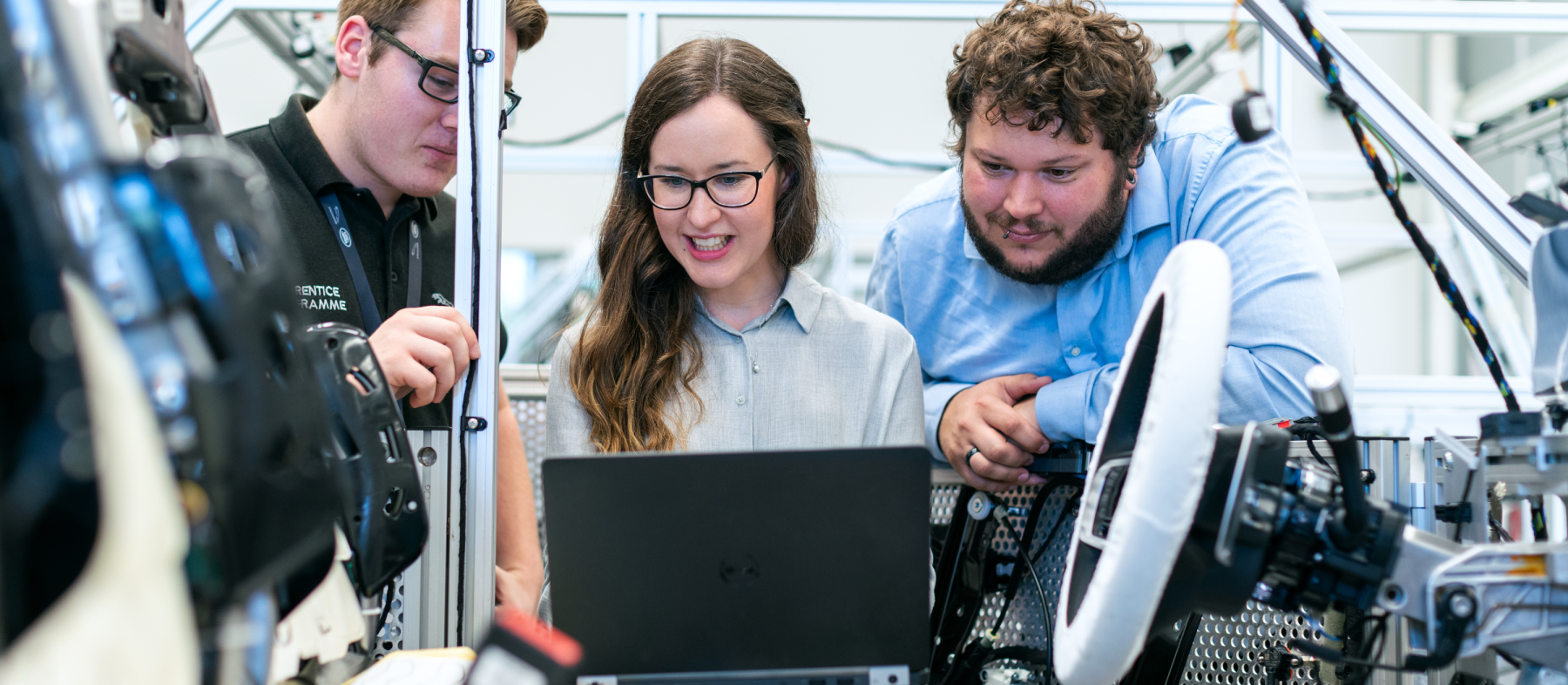Program Goals:
The Engineering associate degree program is a rigorous program that emphasizes mathematics and sciences; it prepares students for transfer to four-year colleges and universities, at which they can continue their education in all fields of engineering, life sciences, and sciences. The program strives to develop students’ ability and awareness to think critically, solve problems, foster a strong sense of global community, and work wisely and creatively to better themselves and the world in which they live.
Student Learning Outcomes:
Upon completion of the program, graduates will be able to:
- Apply knowledge of mathematics, science, and engineering.
- Design and conduct experiments, as well as analyze and interpret data.
- Design a system, component, or process to meet desired needs.
- Function on multidisciplinary teams.
- Identify, formulate, and solve engineering problems.
- Use the techniques, skills, and modern engineering tools necessary for engineering practice.
Admissions Process:
Admissions inquiries should be directed to admissions@qcc.mass.edu. Prospective students may apply to the program of their choice by following the enrollment steps at www.QCC.edu/enrollment-steps.
Program Admissions Requirements:
Students should note that some first semester courses carry minimum prerequisites. Refer to the program grid.
- High School Diploma or GED/HiSET.
CORI, SORI, Finger Printing & Drug Testing:
Criminal Offender Record Information (CORI) and Sex Offender Registry Information (SORI) checks are not required. Fingerprinting and drug testing are not required.
Additional Cost:
See the Program Fees page.
Technical Performance Standards:
See the Technical Performance Standards page. (Note: Not all programs have technical performance standards).
Credit for Prior Learning:
Credit for Prior Learning (CPL) allows students to use skills they already have towards a college degree or certificate. Work, life, volunteer and military experience may be translated into credit, allowing students to take fewer classes and earn their degree faster. CPL eliminates redundancies for students who have already earned credentials or mastered skills required for their program of study. Email experience@qcc.mass.edu for more information and eligibility.
Career Outlook:
Please consult the Massachusetts Career Information System at https://masscis.intocareers.org/ or the Occupational Outlook Handbook at www.bls.gov/ooh/ for specific occupational information. The CIP code for this program is 14.0102.
Transfer Articulations & Opportunities:
Prospective students may learn more about transfer articulation agreements at www.QCC.edu/agreements. More information regarding transfer opportunities is available at www.QCC.edu/transfer.
Additional Information:
- It is strongly recommended that students interested in this program contact the Program Coordinator as early as possible in order to review degree requirements and make arrangements for any needed prerequisite courses.
- Students should note that some required courses carry a minimum prerequisite of MAT 124 or higher.
- For students pursuing the Engineering associate degree, it is strongly recommended that the following courses be taken in residence at QCC: ERG 223, ERG 225, MAT 235, MAT 237, MAT 238, MAT 243, and PHY 207.
- Online coursework is typically not eligible for transfer credit at Worcester Polytechnic Institute (WPI). Students are advised to consult with their transfer institution(s) of choice for similar policies.

